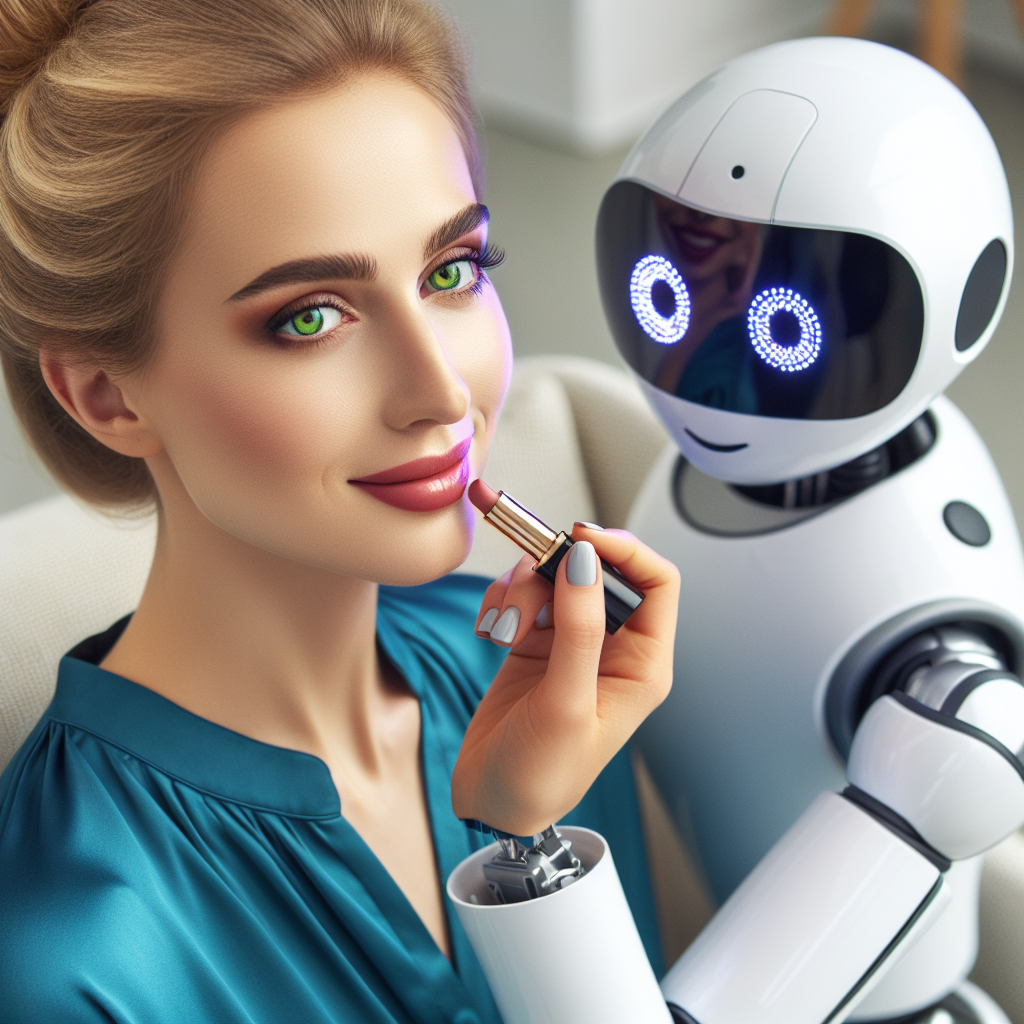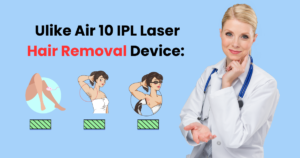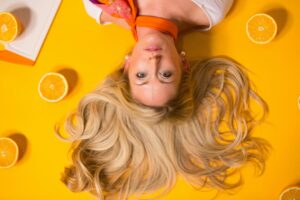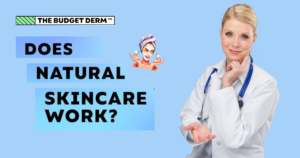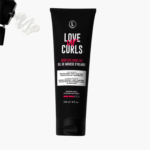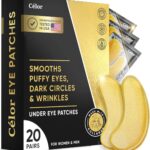Table of Contents
Introduction
In a world where technology touches every aspect of our lives, the beauty industry stands on the precipice of a monumental transformation known as the makeup evolution.
The relationship between technology and daily life is undeniable—a symbiosis that has fostered revolutions in countless sectors. Now, this kinetic energy of innovation has found a new canvas: the beauty industry.
We are on the verge of a substantial paradigm shift, where the tech and beauty worlds intertwine to create something truly revolutionary.
Major companies known for their technological prowess are now setting their sights on the needs and desires of beauty consumers, bringing with them a wave of innovation that could dictate trends for years to come.
Let us together discover whether big tech will simply influence the beauty industry or completely redefine it.
The Intersection of Technology and Beauty
You might think that the innovation in the beauty industry by well-known brands is simply a result of creative marketing teams discussing the next season’s lipstick shades. However, the reality is far more scientifically advanced, with these industry giants investing billions annually into research. The most groundbreaking strides are being made with AI (artificial intelligence) and AR (augmented reality), which layers digital imagery over the real-world view. Nowadays, if you’re facing a beauty dilemma, it’s likely these technological advancements will provide the solution.
Rewind to 2008, well before the buzz around AI and AR began, an up-and-coming American scientist named Guive Balooch entered the scene at L’Oréal. He remembers a time when ‘beauty tech’ barely caused a stir, hosting only uninspiring foot spas and some underwhelming applications.
When asked about the reason for his recruitment, he humbly suggests it might have been his proximity to Silicon Valley, stemming from his California roots. Yet, it’s probably more accurate to credit his impressive academic background, with a PhD in biomechanics and a solid research tenure at the University of California at Berkeley and Stanford.

Balooch realized that 16 years back, technology in beauty was more of a background player rather than a trendsetter. Yet, he envisioned its potential prominence. The release of the first iPhone in the previous year unknowingly heralded a technological revolution ripe with opportunities for the beauty sector.
This potential was propelled even further with the introduction of the iPhone 4 in 2010. Its front-facing camera ignited the selfie phenomenon and revolutionized the cosmetic industry.
The key for Balooch, who has ascended to the role of Global Vice President of L’Oréal’s Technology Incubator, has been consistent cooperation. L’Oréal boasts a comprehensive global data bank and profound expertise in skin and hair care, understanding precisely the desires and requirements of its consumers.
He emphasizes that starting with technology is a misstep; the focus should always be on the consumer’s needs. Whenever a problem arises, Balooch consults the cutting-edge technological branches with a clear challenge, ‘How do we tackle this issue?’
The current focal point of AI and AR in beauty is enhancing accessibility for individuals with limited resources, mobility, or travel options. As Balooch concisely states, ‘Putting technology ahead of consumer needs is a pitfall. It should always be the other way around.’
Several of these groundbreaking innovations have already made their way to the UK, with more on the horizon.
Infallible Foundation Choice
A significant number of women, about half, express a lack of confidence in selecting the right foundation shade. This issue is widespread. Balooch notes, “The crux of the dilemma is the mismatch between the limited range of foundation shades and the virtually infinite diversity of human skin tones.”
Initially, the company experimented with in-store personalized mixing tools, but those were not the ideal solution. Their investigations, however, indicated that offering a palette of around 40 shades would sufficiently accommodate 98% of skin tones with precise shade matching.
Balooch’s first major tech breakthrough was the 2014 launch of the Makeup Genius app by L’Oréal Paris, marking the first-ever virtual mirror application in the United States. It allowed users to experiment with makeup styles directly on their smartphones.
The app was born from a partnership with a visual effects firm known for their cinematic expertise. Right after its release, it was downloaded 25 million times, signaling a grand success that spurred significant investments and expansion. Now, the underlying technology is employed in 80% of major retail outlets.
Personalized Eyebrow Service
In Korea and Japan, 90% of women report difficulty when applying their eyebrow makeup. A novel device, currently exclusive to Asia, marries L’Oréal’s ModiFace AR technology with a printing mechanism. The device scans the face, suggests eyebrow designs, and then prints the chosen shape directly onto the skin in one fluid motion. The printed brows are removable with standard makeup remover, ensuring flawless eyebrows every single time.
Additionally, YSL’s Rouge sur Mesure device, accessible online (and physically available in France), boasts a state-of-the-art color-recognition system and cartridges. With an accompanying app, it offers the capability to create any one of over 4,000 personalized lipstick shades, tailored to complement your face or coordinate with your attire or accessories. This personalized luxury can be found at yslbeauty.co.uk for £269, with each cartridge priced at £95.
Sustainable Haircare Innovations
The realm of AI doesn’t encapsulate all tech advancements. There’s also resource-conscious engineering aimed at reducing water usage. This development is particularly beneficial for salons in areas experiencing water scarcity and for those dedicated to enhancing sustainability practices.
Optimized Water Usage for Hair Washing
Limited water pressure can compromise the hair-washing experience, causing frustration for customers. However, L’Oréal Professionnel has partnered with the Swiss startup Gjosa to develop the Water Saver, a device utilizing micro-droplet technology within a showerhead that cuts water use by 69% in salons without sacrificing water flow.
This innovation is already deployed worldwide, including at the prestigious London salons of colorist Jo Hansford.
Gentler Hairdrying Solutions

At the Consumer Electronics Show in Las Vegas – a prominent global tech event – L’Oréal CEO Nicolas Hieronimus delivered the keynote, underscoring the intersection of beauty and technology.
One of their unveils was the AirLight Pro (set to release this summer), a more energy-efficient hairdryer cutting energy use by 30%.
Traditional dryers, akin to hand-held toasters, heat air through coils and emit it harshly, which can damage hair. The revolutionary AirLight employs infrared light from halogen bulbs combined with a high-speed flow, targeting the hair’s exterior to rapidly dry while preserving inner moisture, yielding sleek and lustrous results.
An accompanying app personalizes the device settings to suit individual hair care needs.
Assisted Precision in Makeup Application

An estimated 50 million individuals worldwide face challenges applying makeup due to conditions like arthritis, tremors, or the aftermath of strokes. Enter Hapta, an ultra-precise, hand-held intelligent device designed to aid in the flawless application of lipstick independently.
Equipped with a computerized motion-stabilizing mechanism and advanced sensors, Hapta is presently exclusive to the US market but will be reaching European shores imminently. Balooch holds this device in high esteem, reflecting on its impact: “Seeing the joy of individuals with paraplegia being able to engage with beauty products reaffirms our dedication to meaningful innovation.”
Challenges and Ethical Considerations in Makeup Evolution

While the merge of AI and beauty presents dazzling opportunities, it also raises significant ethical questions and practical challenges that warrant careful consideration.”
The fusion of artificial intelligence (AI) and beauty is not without its labyrinth of challenges and ethical conundrums. As we forge ahead into this new frontier, issues concerning privacy, inclusivity, and the psychological impact on consumers demand our undivided attention.
Privacy Concerns: With beauty tech relying heavily on the collection of personal data—ranging from facial recognition to skin analysis—there looms the omnipresent risk of data breaches and misuse. Consumers must grapple with the trade-off between personalized experiences and the vulnerability of their intimate biometric data.
Bias and Fairness: AI systems are only as unbiased as the data they’re trained on. The beauty industry must ensure that technology used for product recommendation or virtual try-ons doesn’t perpetuate biases or exclude underrepresented demographics, thus reinforcing beauty stereotypes rather than dismantling them.
Overreliance on Technology: As algorithms begin to dictate beauty norms and product selections, there is danger in surrendering human diversity to the homogenizing effects of technology. Maintaining the delicate balance between tech-assisted convenience and the celebration of individual uniqueness becomes key.
Psychological Effects: The seamless augmentation capabilities of AR could distort users’ self-perception, potentially exacerbating issues related to body dysmorphia. The industry needs to address such psychological implications thoughtfully to prevent a culture of unrealistic beauty standards.
Sustainability and Ethical Production: The environmental footprints of tech-powered beauty tools and products also pose profound ethical questions. Advocating for sustainability and ethically sourced ingredients in an era of rapid innovation is a significant challenge requiring industry-wide commitment.
Accessibility: High-tech beauty solutions must not be a luxury reserved for a select few. Developing affordable options and ensuring equitable access across various socio-economic groups stands out as a moral imperative for companies.
Regulatory Compliance: With the industry venturing into uncharted territories, regulatory frameworks struggle to keep pace with the innovation. Companies and regulators must work synergistically to establish guidelines that safeguard consumers while fostering growth and creativity.
As we embrace the transformative potential of tech-infused beauty, navigating these challenges with intention and integrity will determine the legacy this union will carve. It is a collective responsibility—borne by technologists, beauty brands, and end-users alike—to shape an industry that is pioneering, inclusive, and humane.
FAQs
How does AI personalize skincare recommendations?
AI takes into account factors like skin type, lifestyle, preferences, and environmental conditions. By analyzing data from these areas, algorithms can predict which products will be most effective for an individual’s unique skincare needs.
Is virtual Makeup Evolution application really accurate?
Yes, advanced AI algorithms can map your facial features with high precision and allow you to see how Makeup Evolution products would look on your own face. The accuracy continues to improve with technological advancements.
Can AI help with detecting skin conditions?
AI-powered tools can analyze images of the skin and cross-reference them with vast dermatological datasets to detect and suggest potential conditions. However, these should not replace professional medical advice.
Will AI replace human beauty experts?
AI is intended to augment the expertise of human professionals, not replace them. Human judgment and personal touch remain irreplaceable, especially in creative and nuanced fields like beauty.
What safeguards are in place to protect my personal data?
Companies operating at the nexus of AI and beauty are required to comply with data protection regulations, employ encryption technologies, and seek user consent before collecting personal data.
Are there AI solutions for haircare as well?
Absolutely, AI extends to haircare, with solutions offering personalized product recommendations, virtual hair color try-ons, and even analysis of scalp health.
How can I trust AI-recommended products?
AI recommendations are based on complex algorithms and large datasets. While these provide a good starting point, consumer reviews, and small-scale testing can further guide your decisions.
Does AI consider diverse beauty standards?
It’s a work in progress. Companies are making concerted efforts to train AI on diverse datasets to ensure inclusivity in beauty standards across cultures, ethnicities, and genders.
